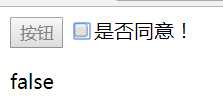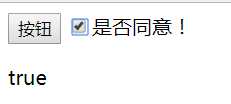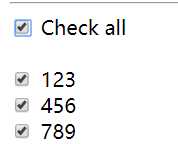一款优秀的前端框架——AngularJS
Posted
tags:
篇首语:本文由小常识网(cha138.com)小编为大家整理,主要介绍了一款优秀的前端框架——AngularJS相关的知识,希望对你有一定的参考价值。
前 言
AngularJS是一款为了克服html在构建应用上的不足而设计的优秀的前端JS框架。AngularJS有着诸多特性,最为核心的是:MVC、模块化、自动化双向数据绑定、语义化标签、依赖注入等等。
AngularJS 是一个 javascript 框架。它是一个以 JavaScript 编写的库。它可通过 <script> 标签添加到 HTML 页面。
AngularJS 通过 指令 扩展了 HTML,且通过 表达式 绑定数据到 HTML。
AngularJS 是以一个 JavaScript 文件形式发布的,可通过 script 标签添加到网页中。
AngularJS最初是由MISKO Hevery和Adam Abrons于2009年开发。现在是由谷歌维护。它的最新版本是1.3.14。
各个AngularJS版本下载:https://github.com/angular/angular.js/releases
|
1. 走进 AngularJS |
AngularJS是为了克服HTML在构建应用上的不足而设计的。 AngularJS使得开发现代的单一页面应用程序(SPAs:Single Page Applications)变得更加容易。
- AngularJS 把应用程序数据绑定到 HTML 元素。
- AngularJS 可以克隆和重复 HTML 元素。
- AngularJS 可以隐藏和显示 HTML 元素。
- AngularJS 可以在 HTML 元素"背后"添加代码。
- AngularJS 支持输入验证。
| 2. AngularJS 中的指令与表达式 |
AngularJS 通过 指令 扩展了 HTML,且通过 表达式 绑定数据到 HTML。
2.1常用指令
AngularJS 指令是扩展的 HTML属性,带有前缀 ng-。
1、ng-app=""声明AngularJS所管辖的区域。一般写在body或者html标签上,原则上一个页面只能有一个。
<body ng-app=""></body>
2、ng-model 指令把元素值(比如输入域的值)绑定到应用程序的变量中。
<input type="text" ng-model="name"/>
3、 ng-bind把应用程序变量中的值,输出到页面HTML视图中,可以与表达式{{}}互相替换。
<p ng-bind="5+5+‘Angular‘"></p>
4、ng-init:初始化AngularJS应用程序中的变量值;
<body ng-app="" ng-init="name=‘NAME‘">
应用程序初始化时,name变量就附有初值。
2.2表达式
AngularJS使用{{}}绑定表达式。用于将表达式的内容输出到页面中。
表达式中可以是文字、运算符、变量等,也可以在表达式中进行运算输出结果。
<p>{{5+5+"Angular"}}</p> //结果为 10Angular
如果AngularJS文件放在页面下方,在页面刷新的瞬间会看到{{}}表达式的原样,所以可以使用ng-bind指令代替表达式。
<p ng-bind="5+5+‘Angular‘"></p>
| 3. AngularJS中的MVC与作用域 |
3.1MVC三层架构
1、Model(模型层):应用程序中用于处理数据的部分,(包括将数据保存或者修改到数据库、变量、文件中)。
在AngularJS中,Model特指的是:应用程序中的各种数据。
2、View(视图层):用户可以看到的用户显示数据的页面。
3、Controller(控制器):控制器是连接View和Model的桥梁,负责从View读取数据,接受用户的操作输入;并将数据发送给Model层。
Model层对数据处理完毕后,将结果返回给Controller,Controller再将结果返回给View层显示。

3.2AngularJS中的模块化开发和依赖注入
创建一个angular的模块。即ng-app=""所需要绑定的部分。需要接受两个参数:
①模块名称。即ng-app双引号中需要绑定的名字。
<body ng-app="myapp">
②数组。表示需要注入的模块名称,不需要注入其他模块可用空数组代替。
var app=angular.module("myapp",[]);
>>>Angular将常用的功能封装到Angular.js,创建主模块时直接可以使用,无需注入。
>>> 而一些应用较少的功能,需要导入对应的JS文件,并且在[]中注入进这个模块,才能够使用。
这就是AngularJS中的【模块化开发】与【依赖注入】!
在AngularJS的模块上,创建一个控制器,需要传入两个参数:
①控制器名称:即ng-controller需要绑定的名称。
<div ng-controller="myCtrl">
②控制器的构造函数,构造函数可以传入多个参数。
>>>如果要在函数中要使用系统的内置对象,则必须通过函数的参数传入,否则不能使用。
>>>AngularJS中的内置对象,都用$ 开头,例如$scope,$rootScope
3.3AngularJS中的作用域
① $scope局部作用域,声明在$scope上的属性和方法。只能在当前controller使用;
② $rootScope 根作用域。声明在$rootScope上的属性和方法,可以在整个ng-app所包含的范围使用。
>>>如果没有使用$scope声明变量,而是直接使用ng-model在HTML标签中绑定的数据的作用域为:
1、如果 ng-model写在某个controller中,则这个变量会默认绑定到当前的controller的$scope上。
2、如果ng-model没有写在任何一个controller中,则这个变量会默认绑定到$rootScope 上。
>>>AngularJS中的父子作用域
1、AngularJS中,子作用域只能访问父作用域中的变量,而不能修改父作用域的变量。
2、为了解决上述问题,可以将父作用域中的变量声明为引用数据类型,例如对象等。
这样可以在子作用域中,直接修改对象的属性,而不需要修改对象本身保存的地址。
<body ng-app="myApp"> <input type="text" ng-model="age" placeholder="age" /> <div ng-controller="myCtrl"> <input type="text" ng-model="name" placeholder="name" /> <div ng-bind="name+‘-----myCtrl的name‘"></div> <div ng-bind="age+‘-----myCtrl的age‘"></div> </div> <div ng-controller="myCtrl1"> <div ng-bind="name+ ‘----myCtrl1的name‘"></div> <div ng-bind="age+‘-----myCtrl1的age‘"></div> <input type="text" ng-model="test" /> <input type="text" ng-model="obj.test" /> <mark ng-bind="test+‘myCtrl1-test‘"></mark> <mark ng-bind="obj.test+‘myCtrl1-obj.test‘"></mark> </div> <mark ng-bind="test+‘全局-test‘"></mark> <mark ng-bind="obj.test+‘全局-obj.test‘"></mark> <div ng-bind="name + ‘----全局的name‘"></div> <div ng-bind="age+‘-----全局的age‘"></div> </body>
<script type="text/javascript">
var app = angular.module("myApp",[]);
app.controller("myCtrl",function($scope,$rootScope){
$scope.name = "zhangsan";
$rootScope.age = "14";
});
app.controller("myCtrl1",function($rootScope){
$rootScope.test = "aaa";
$rootScope.obj = {
test:‘bbb‘
}
});
</script>
| 4.AngularJS 中的过滤器 |
过滤器可以使用一个管道字符(|)添加到表达式和指令中。
>>> 系统内置的过滤器
currency 将数字格式化为货币格式
filter 从数组项中选择一个子集
lowercase 格式化字符串为小写
orderBy 根据某个表达式排列数组
uppercase 格式化字符串为大写
angular.module("app",[])
.controller("ctrl",function($scope){
$scope.classes=[
{name:"张三",age:12,score:78},
{name:"李四",age:12,score:66},
{name:"王二麻子",age:12,score:98},
{name:"赵六",age:12,score:54},
{name:"李二狗",age:12,score:75},
]
})
/*
* 自定义过滤器
*/
.filter("showHello",function(){
return function(text){
return "Hello AngularJS";
}
})
.filter("reverse",function(){
return function(text){
return text.split("").reverse().join("");
}
})
/*
* 自定义过滤器,同时需要传递过滤参数
* 调用过滤器示例:<p>{{12345678901| hideTel:4}}</p>
* 传入的参数4,将被过滤函数的num形参所接受
*/
.filter("hideTel",function(){
return function(text,num){
num=num>0&&num<11?num:3;
text=text+"";
var newText=text.substring(0,11-num)
+text.substring(11-num,11).replace(/\d/g,"*");
return newText;
}
})
/*
* 自定义过滤器,实现根据姓名筛选数据的功能。
* >>> 调用示例:
* 请输入姓名:<input type="text" ng-model="name"/>
* <tr ng-repeat="item in classes | filterByName:name">
*/
.filter("filterByName",function(){
return function(items,search){
if(!search) return items;
var arr=[];
for (var i=0;i<items.length;i++) {
var index=items[i].name.indexOf(search);
if (index>-1) {
arr.push(items[i]);
}
}
return arr;
}
})
| 5.AngularJS中的服务 |
5.1服务Service
1、内置服务:
>>>要使用服务,必须要把服务名通过controller的构造函数的参数注入进来!!!
>>>系统内置的服务,统一使用$开头,服务中的属性和方法统一使用$$开头!!!自定义服务时,需注意与系统服务的写法区分开;
$location:返回当前页面的URL地址信息,是一个对象;
var app = angular.module(‘myApp‘, []); app.controller(‘customersCtrl‘, function($scope, $location) { $scope.myUrl = $location.absUrl(); });
$http:向服务器发送请求,类似于JQuery中的Ajax;
var app = angular.module(‘myApp‘, []); app.controller(‘myCtrl‘, function($scope, $http) { $http.get("welcome.htm").then(function (response) { $scope.myWelcome = response.data; }); });
$timeout:相当于setTimeout()
var app = angular.module(‘myApp‘, []); app.controller(‘myCtrl‘, function($scope, $timeout) { $scope.myHeader = "Hello World!"; $timeout(function () { $scope.myHeader = "How are you today?"; }, 2000); });
$interval:相当于setInterval()
var app = angular.module(‘myApp‘, []); app.controller(‘myCtrl‘, function($scope, $interval) { $scope.theTime = new Date().toLocaleTimeString(); $interval(function () { $scope.theTime = new Date().toLocaleTimeString(); }, 1000); });
2、自定义服务
接收两个参数:
第一个参数是服务名:
第二个参数是自定义服务的构造函数。 我们自定义的服务,本质是一个对象。
对象的属性 ,可以在构造函数中,使用this.属性 表示;
对象的方法 ,可以在构造函数中,使用this.方法 表示;
.service("hexafy",function () {
this.gongneng="将十进制数转化为16进制";
this.func=function (num) {
return num.toString(16);
}
})
使用过滤器实现同样功能:
.filter("filter1",function(){
return function (num) {
return num.toString(16);
}
})
在过滤器中调用服务!!!
也必须在声明过滤器的外层构造函数中,注入服务名称!!!
.filter("filter2",function(hexafy,$location){
return function (num) {
return hexafy.func(num);
}
})
5.2服务Factory
angular.module("app",[])
.controller("ctrl",function ($scope,hexafy) {
$scope.gongneng=hexafy.gongneng;
$scope.num1=hexafy.func(10);
})
.factory("hexafy",function () {
var obj={
gongneng:"将十进制数转化为16进制",
func:function (num) {
return num.toString(16);
}
}
return obj;
})
5.3provider
1、在AngularJs中,service服务 fantory服务都是基于provider服务实现的
2、在定义provider时,可以使用this.$get方法,接受一个函数,函数里面采用与factory完全相同的写法
.provider("hexafy",function(){
this.$get=function(){
var obj={
gongneng:"将十进制数转化为16进制",
func:function(num){
return num.toString(16);
}
}
return obj;
}
})
3、在三种服务中,provider服务是唯一可以写进config配置阶段的服务。
所以说,如果服务需要在配置阶段,也就是在声明controller之前执行的话,则可以使用provider,否则一般使用service或者factory。
angular.module("app",[])
/*.config()表示配置阶段,在声明controller之前执行。可以用于声明一些在controller中
* 需要使用的全局变量、方法、服务等
*/
.config(function($provide){
// 在配置阶段声明provider服务,需要在config中注入系统对象$provide
$provide.provider("hexafy",function(){
this.$get=function(){
var obj={
gongneng:"444"
}
return obj;
}
});
})
.controller("ctrl",function($scope,hexafy){
$scope.gongneng=hexafy.gongneng;
})
| 6. AngularJS 中的select与表格 |
(一)使用数组作为数据源
1、item表示数组中的每一项
2、循环出的option中,value的值,默认为item
3、option显示出的内容(<option></option>标签中的文字)是由item.site for决定的!
<select ng-model="site" ng-options="item.site for item in sites" >
这种写法,默认生成的option效果如下:
<option value="{site : "Google", url : "http://www.google.com"}">Google</option>
<pre>{{site}}</pre>
(二)以对象作为数据源
1、(key,value)第一项表示对象的键,第二项表示对象的值;
2、option的value,永远都是对象的值!
3、option显示出的内容(<option></option>标签中的文字)是由...for决定的!也就是说,for前面是什么,option标签中就是什么。
<select ng-model="site3" ng-options="key for (key,value) in sitess">
<!--
<option value="value">key/value(取决for前面的内容)</option>
-->
</select>
ng-options 和 ng-repeat
1、ng-options使用时,是将指令添加在select上;
ng-repeat使用时,是将指令添加在option上。
2、ng-options使用时,必须同步给select标签绑定ng-model;
ng-repeat使用时,不一定需要绑定ng-model;
3、ng-options使用时,我们只需要关心for前面的部分,即option标签中显示的文字;而option的value会自动分配,不由我们决定。
(使用数组作为数据源时,value就是数组的每一项;使用对象作为数据源时,value永远都是对象的值)
ng-repeat使用时,除了要指定option标签中显示的文字,
还需要手动指定value中的内容,如果没有指定,则默认没有value;
<tr ng-repeat="item in options"> <!-- ng-repeat遍历是,$index 表示当前的行索引! --> <td>{{$index + 1}}</td> <td>{{item}}</td> </tr>
| 7.AngularJS中的DOM与事件 |
1、ng-disabled="true/false";
传入true表示禁用,传入false表示可用
<button ng-disabled="!myCheck">按钮</button> <label> <input type="checkbox" ng-model="myCheck" />是否同意! </label> <p>{{myCheck}}</p>


2、ng-show 是否显示
传入true表示显示,传入false表示隐藏
<label> <input type="checkbox" ng-model="myShow" />是否显示! </label> <p ng-show="myShow">我显示出来啦!!!</p> <hr />


3、ng-hide 是否隐藏
<label> <input type="checkbox" ng-model="myHide" />是否隐藏! </label> <p ng-hide="myHide">我显示出来啦!!!</p>
4、ng-if: 是否移除元素
当传入true显示,传入false时移除。
效果与ng-show相同,但是ng-show和ng-hide只是隐藏元素,而ng-if是将元素从DOM中直接移除!
<label> <input type="checkbox" ng-model="myIf" />是否移除! </label> <p ng-if="!myIf">移除!!!</p>
5、ng-bind-html : 相当于 innerHTML
而ng-bind 相当于 innerText
注意:要使用ng-bind-html,必须导入angular-sanitize.js文件进行安全验证。
同时需要在声明模块的时候,在数组中注入安全验证模块‘ngSantize‘
<div ng-bing-html="html"></div>
6、ng-checked 设置复选框或单选框的选中状态。
传入true设置当前复选框被选中。
<input type="checkbox" ng-model="all" /> Check all<br /><br /> <input type="checkbox" ng-checked="all" /> 123<br /> <input type="checkbox" ng-checked="all" /> 456<br /> <input type="checkbox" ng-checked="all" /> 789<br />

7、ng-class:用于设置给元素添加class类。
可选值有以下几种情况:
① 可以是字符串。表示直接给元素添加对应的class。多个class之间,用空格分隔。
② 可以是对象。对象的键表示class名字,对象的值为true或false,当值为true时表示添加对应的class。
③ 可以是数组,数组中的值可以是字符串或对象,判断规则同上。
<div ng-class="‘div div2‘">这是一个div</div> <label> <input type="checkbox" ng-model="myClass" />给div添加样式? </label> <div ng-class="{‘div‘:myClass,‘div1‘:!myClass}">这是一个div</div> <div ng-class="[{‘div‘:myClass,‘div1‘:!myClass},‘div3‘]">这是一个div</div>
8、ng-switch 根据变量的值,选择不同的ng-switch-when来显示,当没有合适的选项时,显示ng-switch-default
| 8、AngularJS中的表单和输入验证 |
1、表单中,常用的验证操作:
$dirty 表单有填写记录
$valid 字段内容合法的
$invalid 字段内容是非法的
$pristine 表单没有填写记录
$error 表单验证不通过的错误信息
2、验证时,必须给form和input,设置name属性。
给form和input设置name后,会自动将表单信息绑定到$scope作用域中。
所以可以直接使用formName.inputName.$验证操作 得到验证结果。
例如:
formName.inputName.$dirty = "true"; 表示表单被填写过!
formName.inputName.$invalid = "true"; 表示表单输入内容不合法!
formName.inputName.$error.required = "true"; 表示设置了必填,但是没有输入!
注意:
$error支持的验证:required/minlength/maxlength/partten/eamil/num/date/rul等
3、为了避免AngularJS的验证与HTML5的表单验证冲突!!比如说 type="email" required等,H5也会进行验证,那么可以给form添加"novalidate"属性,禁用HTML5的验证功能。
<div class="container" style="width: 500px;margin: 50px auto;padding: 0px;"> <div class="panel panel-primary"> <div class="panel-heading"> <div class="panel-title text-center"> 用户注册 </div> </div> <div class="panel-body"> <form class="form-horizontal" name="form" novalidate> <div class="row"> <div class="col-xs-3">用户名</div> <div class="col-xs-9"> <input type="text"class="form-control"name="name" ng-model="user.name" ng-minlength="6" ng-maxlength="12"/> <p style="margin: 0px; color: red;" ng-show="form.name.$invalid && form.name.$dirty"> <span ng-show="form.name.$error.required">用户名必须填写</span> <span ng-show="form.name.$error.minlength">用户名长度最小为6位</span> <span ng-show="form.name.$error.maxlength">用户名长度最大为16位</span> </p> </div> </div> <div class="row"> <div class="col-xs-3">邮箱:</div> <div class="col-xs-9"> <input type="email" class="form-control" name="email" ng-model="user.email" required/> <p style="margin: 0px;color: red;" ng-show="form.email.$invalid && form.email.$dirty"> <span ng-show="form.email.$error.required">邮箱必须填写</span> <span ng-show="form.email.$error.email">邮箱不合法</span> </p> </div> </div> <div class="row"> <div class="col-xs-3" >密码:</div> <div class="col-xs-9"> <input type="password"class="form-control"name="pwd" ng-model="user.pwd" pattern="^\w{6,18}$" required/> <p style="margin: 0px; color: red;" ng-show="form.pwd.$invalid && form.pwd.$dirty"> <span ng-show="form.pwd.$error.pattern">密码只能由6-18位的字母、数字、下划线</span> </p> </div> </div> <div class="row"> <div class="col-xs-3" >确认密码:</div> <div class="col-xs-9"> <input type="password"class="form-control" name="repwd" ng-model="user.repwd" required/> <p style="margin: 0px; color: red;" ng-show="user.pwd!=user.repwd && form.repwd.$dirty"> 两次密码输入不一致 </p> </div> </div> <div class="row"> <div class="col-xs-5"> <input type="submit" value="注册" class="btn btn-success" ng-disabled="form.$invalid||user.pwd!=user.repwd"/> </div> <div class="col-xs-5"> <input type="reset" value="重置" class="btn btn-warning"/> </div> </div> </form> </div> </div> </div>
| 9.AngularJS中的动画 |
在AngularJS中使用动画:
1、导入angular-animate.js
2、如果页面中没有自定义的app模块,则可以直接绑定系统模块ng-app="ngAnimate"
如果页面中有自定义的app模块,则可以在自定义模块的数组中,注入ngAnimate。
angular.module
3、当使用ng-show、ng-hide显示或者隐藏元素的时候,系统会自动添加或者移除,ng-hide这个class类。
4、当使用ng-if/ng-switch/ng-repeat等其他指令,需要分别设置显示后和隐藏后的两种class样式;
显示后的class: .ng-enter-active,.ng-leave{}
显示后的class: .ng-enter,.ng-leave-active{}
以上是关于一款优秀的前端框架——AngularJS的主要内容,如果未能解决你的问题,请参考以下文章